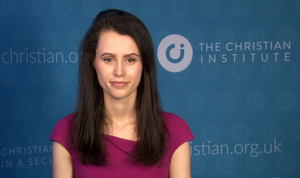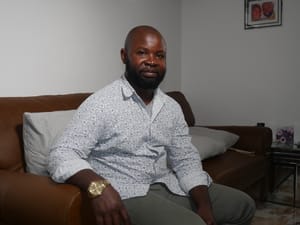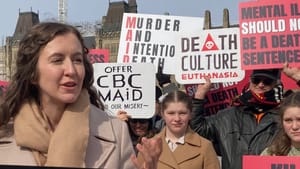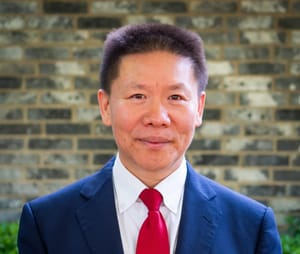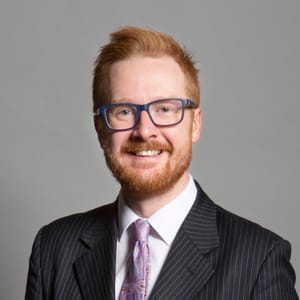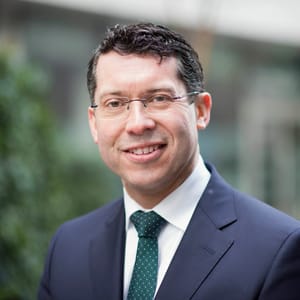Church planting in Ukraine
Recently, Andy, a gospel worker from the UK managed to grab an hour with the pastor of a newly established city church in Ukraine and to interview him. Pastor Sasha Donchenko is 51 years old, and married, with two children and two grandchildren.
Andy: How long have you been the pastor of this church?
Sasha: I’ve been pastor since 2004, but the work began in 1996. I was responsible then for children’s ministry in another church, when opportunity came to take Bible studies in government schools straight after the collapse of communism. We were invited into a school and, amazingly, 800 children signed up for a Christian booklet and to join a kids’ Saturday Bible study group. That was the start of it. This area then had 45,000 people, but not one church.
Andy: What kinds of people have been saved?
Sasha: Different kinds of people from different levels of society started to come. Then some teachers at the school were saved, as well as the secretary of one of the big local factory bosses; and they all started to bring people along. Many others came; most were completely unchurched. Even today, only 5 per cent of our members are from Christian families.
Andy: Has this brought particular challenges and difficulties?
Sasha: To be honest, it’s been easier to work with the unchurched than people from a traditional Christian background. The first accept what they hear from the Word of God and don’t argue. Those who have been Christians for many years often argue about doctrine they hold in their minds, but which hasn’t reached their hearts to bring longing for God. On the other hand, those from the world have needed teaching elementary Christian principles in everything. This has taken much time and patience.
Andy: What particular pressures do new converts face?
Sasha: Many extended families in Ukraine share accommodation because of the poverty. This can lead to lots of pressure against Christians from non-Christian family and friends, with antagonism and arguments.
Andy: What has surprised you most in the church’s growth?
Sasha: Some periods at the beginning were painful and some watching imagined we would die as a church. But God gave peace and seemed to say, ‘Stand and watch how I will lead my people’. Then a whole stream of people at that time repented and asked for baptism. It was God’s work. He brought the people and it was as though I was just watching what he was doing, surprised and amazed.
Andy: What has troubled you most?
Sasha: I am very concerned that we don’t move into mere formality and tradition. We want to pass on real spiritual life to the next generation, not just traditions.
Andy: In what ways are you seeking to develop church leaders?
Sasha: I pray about this constantly. I try to give opportunities to younger brothers for preaching and service, so they and others might see their gifts. Also, I give specific tasks to various ones, so they can develop a sense of responsibility and accountability.
Andy: How important is evangelism and church planting to this church?
Sasha: We already have three church plants underway. I believe that evangelism is the life of the church. At present, we oversee these congregations for the Lord’s Supper, baptisms and pastoral oversight.
Andy: What relationships do you have with other evangelical churches in the city?
Sasha: We have good relations with other evangelical churches. There are four main church groups; we are in one of them. I have a wider ministry within this group, involving camps, conferences and developing children’s ministry and camps.
Andy: How is Ukraine different today from the days of communist persecution?
Sasha: Regarding ministry and church teaching, it is harder now than in the days of persecution. Then, there was the church on one side and the world on the other. It was easy to see where the line was drawn. Now, freedom brings new challenges and the devil causes many difficulties. It seems harder now to be a serving Christian than before.
Andy: What do you feel is your greatest privilege as a pastor?
Sasha: That I may serve the Lord. If it were not for Christ, I would have been a selfish person. But by his grace, it is a treasure to be able to serve.
Andy: In what ways did the Lord use your time in prison?
Sasha: I was two years in prison for the gospel, and I understand that for those two years God worked on my soul, checking my strength and testing my faithfulness. He put me there and gave me strength to live through it. Those two years were a special blessing. Now I can serve him in the church, the bride of Christ, and this is so different from working in the world.
Andy: What most encourages you at the moment?
Sasha: I am encouraged that there will be a newly planted church near to us. Also, I was invited recently to study four times a year, for a week, at a Christian university. This gives me inspiration to continue to serve.
Andy: Your church has had a number of different buildings already. How has that come about?
Sasha: The church has moved several times in the last ten years, through growth. Today we have 87 members, plus families, children and visitors. On a Sunday, if everyone comes, people have to stand up, as we have no space. Hence our present need to extend.
Andy: What issues are there working among people with a Russian Orthodox background?
Sasha: The Russian Orthodox Church and its culture are a constant pressure. When people enter into a real relationship with the Lord Jesus Christ, their traditions start to fall away. But some traditions are hard to throw off, even years later. We have to leave people to ‘ripen’ under the Word of God. Some too are fired to evangelise those in the Orthodox Church, to rescue them from false religion.
Andy: How does poverty affect the life of the church?
Sasha: There is much material need. Most people in work have a very small income, and none of it protected by insurance. Hence, from time to time, church members fall into financial crisis. Humanitarian aid is a great help, but rarer than before, so we can’t rely on it. And, of course, our level of church giving reflects the poverty. But, even so, people are tithing and we are continuing to build our church extension — though we do most of the work on that ourselves.
Andy: What are your hopes for the future?
Sasha: That there would be more churches in our area; that the plants would grow and become fully independent; and that in seven other villages and areas we evangelise during the summer there will be churches planted. We hope for better preparation of ministers for the future and that churches will grow into supporting their ministers financially.
Andy: Do you have any prayer requests?
Sasha: That in our church there will be more ministers raised up, dedicated to the Lord and serving him; that we would soon complete our building extension; that the Word of God would bring many more people to Christ; and that the Lord would lay on the hearts of his people to help with the summer camps for children.


